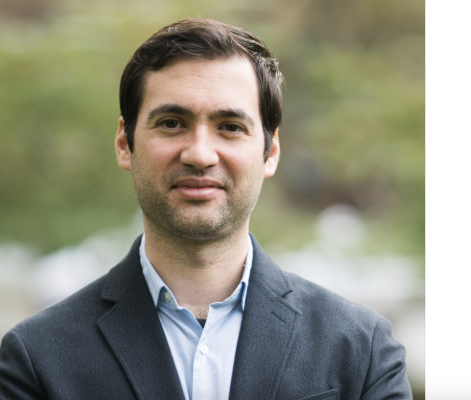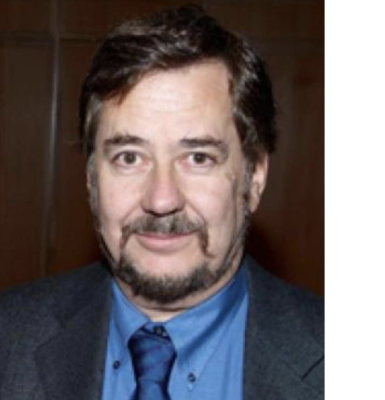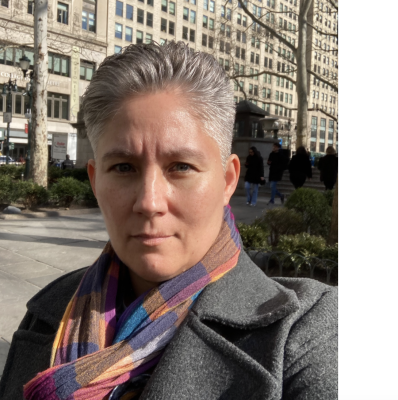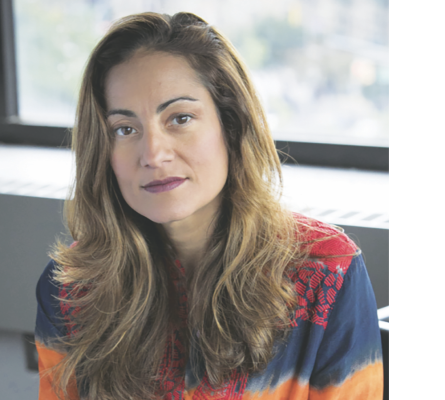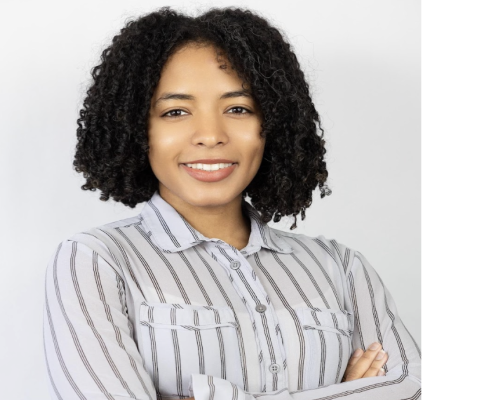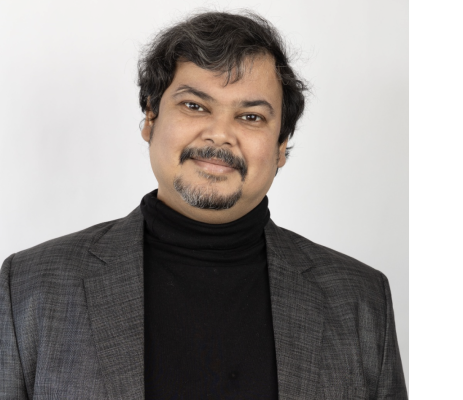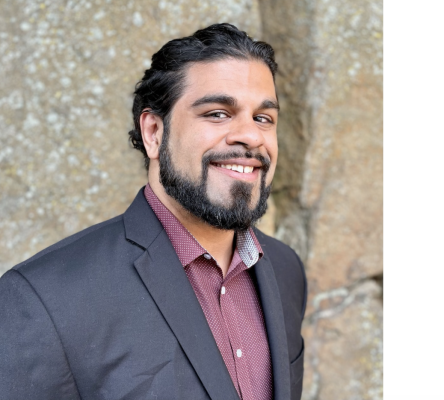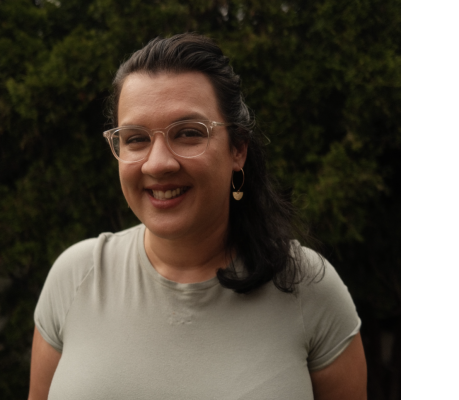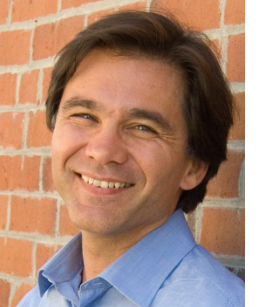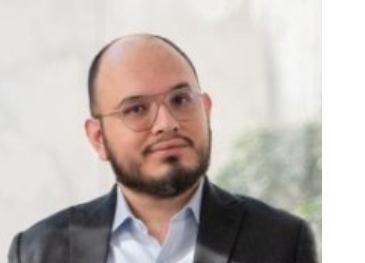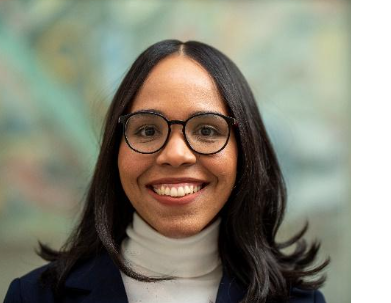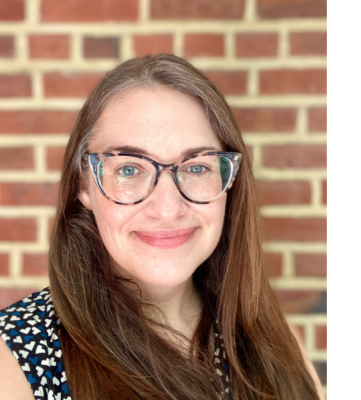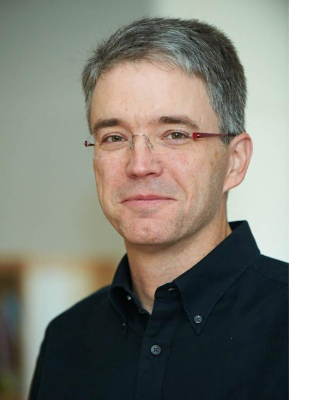Emanuel Agu
Emanuel Agu is a labor economist specializing in social policy and demography with over 15 years of experience working in the private sector and higher education. Emanuel has authored several technical reports on living conditions, well-being, and population trends for faculty and government officials at the national and local levels.
With a focus on social inequality, Emanuel has taught graduate and undergraduate courses on public economics and urban economics and currently serves as an Adjunct Lecturer of Economic Analysis and Public Policy at the Marxe School of Public and International Affairs of Baruch College. His current research explores the impact of social and physical environmental factors on economic mobility and equality of opportunity. He has been a junior scholar with the Stone Center on Socio-Economic Inequality at the CUNY Graduate Center and a research fellow with the CUNY Institute for Demographic Research.
Emanuel holds an MA in Economics from the University of Buenos Aires, Argentina. He earned an MPhil in Economics and a Certificate in Demography from the CUNY Graduate Center, where he is completing a PhD in Economics.
Project Description
This project studies the role of the City University of New York (CUNY) in fostering upward mobility in its distinctive metropolitan environment. The project explores the relationship between the low levels of income segregation at CUNY colleges and social interaction among students from different socioeconomic backgrounds as an explanation for the high rates of ‘college mobility’ (bottom-to-top income quintile mobility among CUNY students). Indicators of cross-class interaction, termed economic connectedness, are constructed using linked data of geocoded student records at the neighborhood level, data on college enrollment, college characteristics, family background, and neighborhood socioeconomic characteristics of the students by college. The research design considers identifying the effect of graduating from CUNY colleges on low-income students living in disadvantaged neighborhoods.
Paul Attewell
Research on the role of higher education in intergenerational social mobility took a leap forward when Raj Chetty and his colleagues were able to access government data on college attendance for millions of Americans linked to longitudinal earnings data on their families when they were teenagers and their later earnings data when they reached their thirties. Chetty’s research showed that several CUNY colleges were exceptional in generating upward income mobility among their undergraduates. However, Chetty’s analyses focused on students who came from families at the very bottom of the income ladder and rose to the very top the income ladder.
The twin goals of our proposed research project are:
(1) a re-analysis of this data focusing on the role of college in generating middle-level mobility of undergraduates (into the middle class) as well as bottom-to-top upward mobility, and
(2) a statistical analysis linking upward mobility to the demographic composition and institutional characteristics of the colleges where upward mobility occurs, and hence to identify and quantify the influence of institutional and demographic factors most strongly associated with high rates of upward mobility, factors such as a student body’s composition by gender, race, immigrant status, as well as institutional expenditures.
Degrees of Discordance: Social Mobility & Sibling Relations
The minority of 1st generation students who successfully navigate the gantlet of college to become degree holders simultaneously create cross-attainment, or degree-discordant, relationships within their families of origin. Because the introduction of unequal educational outcomes reconfigures power dynamics, social standing, and authority within the working-class family, upward mobility through higher education has a lasting impact on many relationships within the 1st gen family that we wouldn’t expect to see within middle-classed or continuing-education families. Thus, even those who don’t experience an explicit ‘intervention,’ so to speak, are nevertheless affected by the experiences, outcomes, and positionality of important others who do. This study will investigate the relational impact of disparate levels of educational attainment, identifying and comparing the ideological dilemmas specifically facing non-degreed/non-degree-seeking siblings to those faced by 1st gen college graduates, to reveal both points of connection and as well as conflict, asking: How are sibling relations and dynamics impacted by differences in educational attainment? How is this difference in positionality and relative status experienced and understood by non-degreed sibling(s)? And what can these sibling dynamics tell us about larger relations across educational attainment status beyond the family context, particularly in this historical moment of extreme partisan politics?
April Burns
April Burns is an Associate Professor of Psychology at Guttman Community College, City University of New York where she teaches interdisciplinary social science courses as well as courses in psychology. She holds a Ph.D. in Social Psychology from the CUNY Graduate Center. Her research investigates the lived experience of ideological dissonance and affective dilemmas, and the ways that people negotiate such ambivalences relationally, particularly working-class families and those of first-generation college graduates. Her current research addresses cross-attainment or credential-discordant sibling relationships. She has written on issues of social mobility and educational equity in higher education in Teachers College Record, and the Journal of Social Issues, and on adolescent sexuality in relation to education in Feminism & Psychology and in Sexuality Research and Social Policy.
Project Title - A longitudinal analysis of social mobility among students and alumni of the City College of New York
Project Summary
The current longitudinal project will probe the sources of City College’s success in driving social mobility. Current CCNY undergraduates, and alumni who graduated from City College one, five, and ten years ago, will complete surveys on demographics, current social standing, social mobility, mental health and retrospective college memories. Using data from these surveys, we will identify the social, economic, and psychological elements that allow City College to be an engine of social mobility and to then employ those elements to maximize social mobility gains for future City College students. We also will survey current CCNY undergraduates after their graduation. One possible explanation for the elevated graduation rates and higher success of City College students is due to them experiencing lower minority status stress – the perception of an unwelcoming campus environment, direct experiences of discrimination, within-group pressure, and a sense of academic disadvantage – compared to students from colleges where one racial/ethnic group predominates. We will examine mental health and other variables, including minority stress, across various cohorts of City College students and alumni, to quantify their roles in enhancing college completion and long-term career success.
Robert Melara, PhD
Dr. Melara is a psychophysicist and cognitive neuroscientist with 30 years of experience as an investigator of normal and impaired processes of attention in humans, publishing over 60 peer-reviewed articles. He has extensive experience using a range of laboratory techniques that he implements in collaborative research projects with the undergraduate students in the biomedical and behavioral sciences. His research is supported by grants from NIDA, NSF, and NCI. Dr. Melara serves as the chairperson of the Department of Psychology at CCNY. He has launched a host of local and federally funded initiatives to promote student success in earning their baccalaureate degrees. For example, Dr. Melara is PI on a T34 NIH grant (Bridges to Baccaulaureate) that facilitates the transition of minoritized students from community college to senior college and provides them with laboratory training in STEM disciplines. He is excited to be part of the Social Mobility Lab at CCNY.
Adriana Espinosa, PhD
Dr. Adriana Espinosa is Associate Professor in the Department of Psychology at The City College of New York and doctoral faculty at The Graduate Center, CUNY. She received a PhD in Economics from the University of California, Berkeley. Dr. Espinosa leads an interdisciplinary research program that centers on the examination of salient factors that create, maintain, and exacerbate health and social inequality among Hispanic, immigrant and other minoritized populations. Her work is grounded on an intersectionality framework that identifies interconnections between socioeconomic, environmental, cultural, and psychological determinants of health and adaptation. Dr. Espinosa’s work is supported by grants from the National Institutes of Health and other sources. She has multiple years of experience leading or collaborating in projects aiming to promote social mobility and reduce social inequality among Hispanic and other minoritized individuals. She has mentored over 30 students and early career individuals from backgrounds underrepresented in STEM fields.
Kai Gilchrist, MS
Kai Gilchrist is a lecturer for the Psychology department. She received her B.S. in Psychology from City College and then received her M.S. in Neuroscience and Education from Teachers College, Columbia University. She has worked as a lecturer at City College since 2019 and an academic advisor since 2018. She is interested in studying nontraditional treatments for major depressive disorder and anxiety disorders but has also done research with children, adults, and individuals with ASD in terms of numerical cognition and language processing.
Prabal De, PhD
Dr. Prabal De, an economist by training, is an expert on health and labor policies. He is a Professor of Economics at the Colin Powell School of the City College of the City University of New York. He is also a doctoral faculty member at the Graduate Center and a faculty affiliate at the CUNY Institute of Demographic Research. Dr. Prabal De's current research interests are at the forefront of economic and health policy discussions. They include evaluating the impacts of the Affordable Care Act, the effects of economic conditions and regulations on drinking and smoking, schooling expansion and reproductive health, research related to COVID-19, the impacts of economic shocks on mental health and wellbeing, and the impacts of discrimination on health outcomes. He holds a BA in economics from Presidency College, Calcutta, an MA in economics from Jawaharlal University, and a PhD in economics from New York University.
Waleed Sami
Waleed Sami is an assistant professor within the mental health counseling department, nested in the larger psychology department at CCNY. Waleed practiced as a mental health therapist within marginalized populations and community mental health centers for many years before obtaining his PhD. Waleed currently teaches various courses within the mental health counseling program, including career counseling, practicum supervision, and child/adolescent counseling. His research interests include examining the influence of inequality on mental health and well-being. His past research has covered the impact of labor unions on mental health outcomes, developing social risk assessments for therapists, and improving religious and spiritual competence amongst therapists.
Lay Summary
Social mobility refers to the mechanisms and processes that help an individual progress in social status. Social mobility is vital for ensuring equal opportunities and reducing inequality within society, particularly in the context of higher education. However, social mobility has declined as inequality has grown within the United States. Little is known about social mobility dynamics within the Muslim-American population, despite being the youngest faith group within the United States, and incredibly diverse across race, ethnicity, language, and religiosity. Muslim Americans also report lower wealth and income compared to other religious groups and represent close to ten percent of the New York City population, making their social mobility aspirations within the CUNY system important for understanding contemporary social mobility dynamics. Prior research has shown the importance of religious identity and filial piety in career and education decisions, yet little is known if these influences impact Muslim American's social mobility aspirations within New York City. This grant will facilitate a range of quantitative and qualitative research projects, assessing the influence of family and religious identity of career and education aspirations amongst Muslim Americans. Project results may aid in the development of community outreach and specific programming on campus.
Dhipinder Walia
Dhipinder Walia has been a full-time lecturer at Lehman College, CUNY for over ten years. She primarily teaches composition and creative writing courses with special topics that range from "responding to prompts" to "writing about trauma." Dhipinder is also a PhD student at the CUNY Graduate Center and is working on a dissertation project focused on campus childcare activism and rhetorics of care. The project uses archival material to historicize childcare activism on CUNY campuses and interviews from current CUNY student-parents to better understand how students define care, parenting, and joy. She is most proud of her life-title as parent to a two-year-old named Jack.
Project
"Rhetorics of Care within Student-Parent Communities" investigates student-parents’ concepts of care. Specifically, how do student-parents define care for themselves and for their children? By interviewing current student-parents at Bronx Community College’s Childcare Center, this project will archive the different caring practices that emerge from a support service like a campus childcare center.
This project will draw connections between testimonies from current student-parents and archival material from student-activists during the CUNY Open Admissions movement of the 60s, 70s, and early 90s to argue a demand for a public education that is accessible has always included and must continue to include a demand for high quality campus-based childcare.
This project will also emphasize care networks that student-parents build outside and within college campuses to sustain their own well-being as well as the well-being of their children. How do these care networks emerge? How are these care networks strengthened through physical spaces like childcare centers? By interviewing current student-parents and drawing from care studies scholars like Eve Kittay, Audre Lorde, bell hooks, and Joan Tronto, this project will build a definition of care network that emphasizes joy, rest, and interdependence.
Finally, this project will involve producing a short documentary in which student-parents will share their first-hand experiences of using campus-based childcare in hopes of advocating for institutional definitions of success, support, and mobility that include the caring for and caring about students and their children.
Project Summary
In the United States, the American Dream has become an elusive quest as intergenerational mobility is harder to achieve compared to other developed countries. While college education should be a pathway to intergenerational mobility (e.g. children’s opportunity to overcome their parent’s socioeconomic circumstances), its effects in the United States vary by college type, race, and household structure. This research aims to measure how college access affects education and income intergenerational mobility among children from fragile families in the United States, specifically children born to unmarried parents. The study will examine interactions between college enrollment and students’ circumstances, differentiating results by race and gender. Using the novel Future of Families and Child Wellbeing Study panel dataset hosted at Princeton University, this is the first study, to the best of our knowledge, to analyze college education and income mobility among fragile families in the United States, an understudied population in the literature. Our research has the potential to have policy resonance since about one-third of children in the country grow up with unmarried parents. Most household surveys underestimate non-resident fathers, and by using this representative survey we hope our findings will help inform policies to improve college graduation and income mobility among children facing the most pressing challenges in attaining the American Dream.
Miles Corak
Miles Corak is a full professor of economics with The Graduate Center of the City University of New York, and senior scholar at the James M. and Cathleen D. Stone Center on Socio-Economic Inequality. His publications have informed public policies addressing social mobility, the measurement of poverty, and child poverty in Canada, the United States, and more widely.
His research focuses on different dimensions of social mobility. He has edited and co-authored four books, and his paper published in the Journal of Economic Perspectives, “Income Inequality, Equality of Opportunity, and Intergenerational Mobility,” examines the relationship between inequality and social mobility across countries, a relationship that has become known as the “Great Gatsby Curve.”
In addition to holding positions with UNICEF, The Russell Sage Foundation, Princeton University, and Harvard University, he was the lead advisor to the Canadian federal government on the development of the country’s first poverty reduction strategy.
Luis Monroy-Gómez-Franco
Luis Monroy-Gómez-Franco is an Assistant Professor in the Department of Economics at the University of Massachusetts, Amherst, and an External Associate Researcher at the Centro de Estudios Espinosa Yglesias in Mexico City. His research focuses on intergenerational mobility and inequality of opportunity, focusing on the quantitative analysis of the effects of the intersection of multiple axes of stratification in developing economies. He has also focused on studying labor market dynamics in developing countries and developing quantitative models to estimate the long-run effects of learning interruptions. He is currently the head researcher of the 2023 ESRU Social Mobility Survey in Mexico and the associated report. He holds an M.A. and a Ph.D. in Economics from the Graduate Center of the City University of New York, an M.Sc in Economics from El Colegio de México and a Bachelor’s in Economics from the Universidad Nacional Autónoma de México.
Haydeeliz Carrasco
Haydeeliz Carrasco is a Ph.D. student in Economics at The Graduate Center (CUNY) and a Research Assistant at the Stone Center on Socioeconomic Inequality. Before her Ph.D., she worked as a researcher (consultant) with organizations such as the World Bank, Inter-American Development Bank, and the Dominican Republic's Social Policy Cabinet. Her research focuses on measuring the socioeconomic and distributional impacts of public policies on households’ welfare. She has co-developed models analyzing how taxes and transfers affect poverty and inequality in over ten developing countries and has coauthored working papers on this topic. She has also worked on projects strengthening social policies targeted to vulnerable households. During her Ph.D., she aims to research how public policies affect individuals’ intergenerational mobility. She holds a Bachelor's in Economics from Pontificia Universidad Católica Madre y Maestra in the Dominican Republic and a Master’s in Public Administration in International Development from the Harvard Kennedy School.
How Students from Precarious Legal Statuses Navigate Structural Barriers and Achieve Success
Project description
How do narratives of success and ideas about belonging in American society, such as meritocracy and equality of opportunity, frame the ways that CUNY students perceive their ability to achieve their goals? In my research I explore the juxtaposition between the “nation of immigrants” ideology and social policies which explicitly limit immigrants’ participation in society. Specifically, how do CUNY students with precarious immigration statuses, including students who are undocumented, understand their own possibilities for upward mobility in this context? How does the institution itself support such students? To answer these questions, I will talk with current and former CUNY students to understand how the meanings and uses of narratives about success, belonging, and inclusion inform their educational and career pathways and experiences. In this project I will also analyze whether and how formal and informal student support services at CUNY provide an environment where students with precarious backgrounds feel that social mobility is accessible.
Jennifer is an adjunct lecturer in the Sociology department at City College where she teaches courses on migration, citizenship, and race and ethnicity. Her research focuses on how state and institutional policies impact academic aspirations and performance among college students with precarious legal statuses. She is at work on a textbook about the sociology of immigration; in the text she encourages students to analyze their individual and family stories within the context of migration and citizenship policies. Jennifer is also a PhD candidate at The Graduate Center, CUNY, and a Research Associate in Teacher Education at CUNY’s Office of Academic Affairs. She holds an MPhil in Sociology from The Graduate Center and a BA in Sociology from the University of Wisconsin - Madison.
College completion and mental health
The data show a strong positive correlation of college completion with better mental health by a variety of measures. To what extent is that causal? That would extend and deepen our understanding of how college shapes life outcomes -- beyond the impact of college on earnings, there is impact on quality of life (and perhaps next generation). To the extent that causality is from mental health to college completion, that might help to justify greater provision of mental health services to college students.
Kevin R. Foster is the Associate Dean of the Colin Powell School for Civic and Global Leadership at The City College of New York. His research has been concentrated in four main areas: assessing the relevance of Japanese monetary and fiscal policies to American experiences in the Financial Crisis; nonparametric methods for option pricing; examining asset returns for evidence of predictability particularly contrarian or momentum returns; and environmental entrepreneurship. The finance research in a number of different topics has had the unifying theme of applied econometrics, using leading-edge econometric procedures to examine questions relevant to policy and practice. With faculty in economics, and earth sciences, he led an interdisciplinary research team in environmental entrepreneurship, which has received over three-quarters of a million dollars in funding. In 2010 Foster was visiting faculty at the University of Shanghai for Science and Technology. He has served as an advisor to start-ups and private equity investment companies. Dr. Foster came to City College after receiving a Ph.D. from Yale University in 1998. He was an undergraduate at Bard College, NY.
Last Updated: 10/08/2024 20:40

